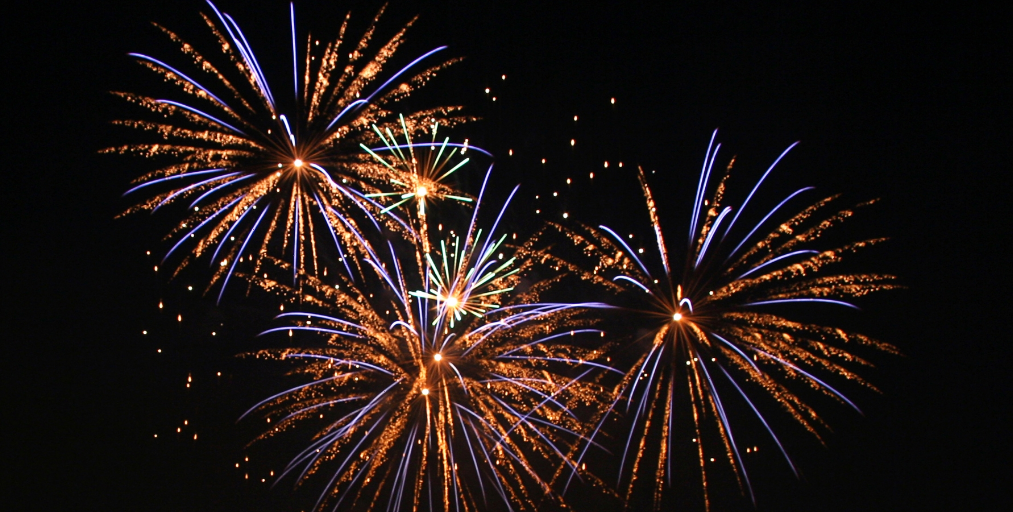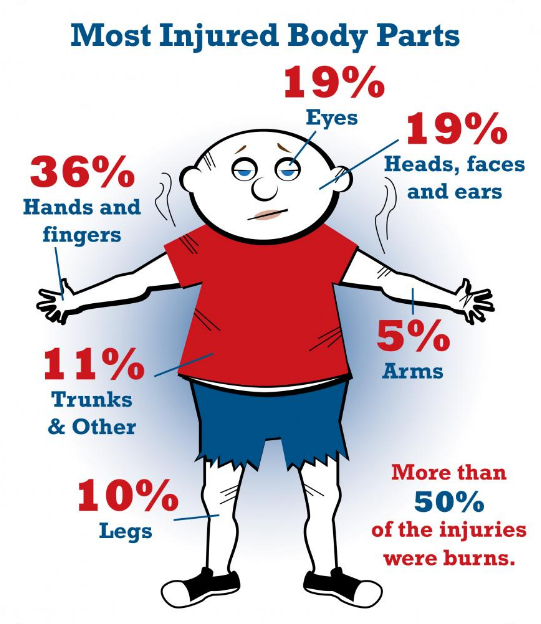
Ooo!
Boom. This coming Monday, red, white and blue-blooded Americans will celebrate 240 years of the U.S. being earth’s raddest country. How will we do this? The same way we always do: With explosions of varying sizes and colors. Double boom. Triple boom, even.
 Now, not to be a total buzzkill, here, but fireworks, while pretty and also loud, can be dangerous if handled dumbly. So while you may be a very responsible fireworks exploder, you watch, this weekend St. Joseph’s Hospital emergency room staff will undoubtedly assist a few patriots.
Now, not to be a total buzzkill, here, but fireworks, while pretty and also loud, can be dangerous if handled dumbly. So while you may be a very responsible fireworks exploder, you watch, this weekend St. Joseph’s Hospital emergency room staff will undoubtedly assist a few patriots.
In addition to fireworks, millions of Americans will utilize this quasi-three day weekend to recreate in a multitude of summery ways. Thus, LoCO will refer you the following handy dandy set of sensible Fourth of July precautions provided by the American Red Cross. Share them with the person in your life you most worry about:
Everyone is looking forward to the upcoming Fourth of July holiday weekend and the American Red Cross has steps they can follow to stay safe when enjoying the fireworks or taking a trip to the beach.
“This coming weekend, millions of people will hold cookouts and BBQs, visit beaches and pools, and watch fireworks to celebrate the 4th of July,”said Jeff Baumgartner, CEO, American Red Cross of the California Northwest. “The American Red Cross has developed simple steps that will help ensure everyone enjoys a safe and prepared holiday. Additionally, we also invite the public to download our First Aid and Swim Apps to have important safety information at their fingertips.”
FIREWORKS SAFETY The safest way to enjoy fireworks is to attend a public fireworks show put on by professionals. Stay at least 500 feet away from the show. Many cities and states outlaw most fireworks. If someone is setting fireworks off at home, follow these safety steps:
- Never give fireworks to small children.
- Always follow the instructions on the packaging.
- Keep a supply of water close by as a precaution.
- Make sure the person lighting fireworks always wears eye protection.
- Light only one firework at a time and never attempt to relight “a dud.”
- Store fireworks in a cool, dry place away from children and pets.
- Never throw or point a firework toward people, animals, vehicles, structures or flammable materials.
- Leave any area immediately where untrained amateurs are using fireworks.
BEACH SAFETY If holiday plans include visiting the beach, learn how to swim in the surf. Swim only at a beach with a lifeguard, within the designated swimming area. Obey all instructions and orders from lifeguards. While enjoying the water, keep alert and check the local weather conditions. Other safety steps include:
- Swim sober and always swim with a buddy. Make sure you have enough energy to swim back to shore.
- Have young children and inexperienced swimmers wear a U.S. Coast Guard-approved life jacket.
- Protect your neck – don’t dive headfirst. Walk carefully into open waters.
- Keep a close eye and constant attention on children and adults while at the beach. Wave action can cause someone to lose their footing, even in shallow water.
- Watch out for aquatic life. Water plants and animals may be dangerous. Avoid patches of plants and leave animals alone.
RIP CURRENTS Rip currents are responsible for deaths on our nation’s beaches every year, and for most of the rescues performed by lifeguards. Any beach with breaking waves may have rip currents. Be aware of the danger of rip currents and remember the following:
- If you are caught in a rip current, try not to panic. Swim parallel to the shore until you are out of the current. Once you are free, turn and swim toward shore. If you can’t swim to the shore, float or tread water until you are free of the rip current and then head toward shore.
- Stay at least 100 feet away from piers and jetties. Permanent rip currents often exist near these structures.
CLICK TO MANAGE